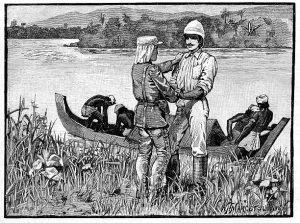
Finding an agent is much like applying for a job. You must convince the agent that your book is right for them, and you must also be sure they are the right agent to represent you.
Do your research and apply only to those agents who are a right fit for your writing. If their author list is all romantic fiction, they are not going to be interested in representing your horror manuscript.
Sources of Information
Various sources are available, and it is a good idea to use at least two sources to come up with a personalised, up-to-date list of agents suitable for your book.
- Writers & Artists Yearbook. An updated edition is released each year.
- Jericho Writers – available by paid subscription.
- Agency websites.
- Many authors include an Acknowledgements section in the end pages of their books, in which they thank their agent. Have a look at those by authors writing in the same genre, or around similar themes, as you.
- Twitter: agents often post what they are looking for.
The query
Always read – and follow – what the agent/agency wants to see. British and North American agents tend to want different things, so I’m just going to talk about querying in the UK.
In the UK, the query usually consists of a sample of your manuscript, a synopsis, and a covering letter. Nothing else, unless the agent has specifically requested it. Absolutely no gimmicks.
Nearly all agents nowadays prefer electronic submissions, usually by email with attachments in Word or pdf format.
The Manuscript Sample
The agency website will specify the word limit, which is often in the region of the first three chapters, or first 10k words. Do not go over the word limit.
Use double line spacing unless stated otherwise, in an easy-to-read font, such as Times New Roman. Number the pages, and include the name of the manuscript and your name in the header on each page.
You can add a front sheet, with the manuscript title, the manuscript length, genre, and your name and contact details, but it is not necessary.
Synopsis
The synopsis should be one page, unless otherwise stated, in single line spacing.
Put the title at the top, then include the shout line (the 25-word elevator pitch).
Try to write in the same voice as your novel. The protagonist’s name should appear early on, but there is no need to include every character. Don’t try to cram it all in, just the main plot points will do.
Remember, this is not the back cover blurb, so avoid talking-up your book with descriptors such as ‘feel-good’, ‘chilling’, or ‘laugh out loud funny’.
Should you include spoilers? Some agents say they want to know, others prefer to approach the book as a reader, and don’t want to know the ending until they’ve read the manuscript.
Cover Letter
The cover letter is what you write in the email.
The Subject line should include: QUERY: Title, Author name, Word count, Genre.
Address the agent by their first name. Never use ‘Dear Sir/Madam’, which suggests you are writing to every agent out there, without doing your research as to whether this is the agent for you.
Keep the cover letter brief and to the point, there is no need for padding, eg. ‘I’m writing to you because…’. Three paragraphs is sufficient:
- First paragraph: pitch the book in two-three sentences.
- Second paragraph: explain why you are approaching this agent in particular. Do your research. Include two comparisons, ideally ones represented by the agent, or that the agent has said they admire.
- Final paragraph: about you in brief – relevant academic achievements, professional experience, awards, published work.
Final Words
Don’t pitch more than one book.
You can query multiple agents at the same time. If an agent asks to see the full manuscript, let the others know, so they’ll get their skates on.
Keep a spreadsheet of who you have approached, and when. Many agents’ websites give an idea of how long you can expect to hear from them, six weeks tends to be the norm. Not every agent will respond.
A polished submission package is more appealing to the agent. While it doesn’t guarantee that they will be able to represent you, they are more likely to read your query.
Further advice can be found in workshops and courses. I recommend the Edit & Pitch Your Novel online course, by Curtis Brown Creative.








